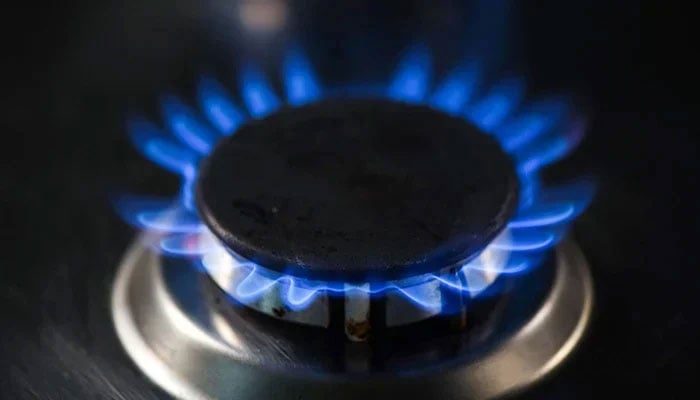If WACOG formula implemented: 91pc hike in average gas tariff for domestic consumers likely
On April 17, the prime minister constituted the committee for recommendations to implement WACOG for reduction of gas tariff for industrial
ISLAMABAD: The implementation of Weighted Average Cost of Gas (WACOG) in gas tariff by blending imported RLNG and local natural gas would cause an average tariff raise by over 91 percent of domestic consumers to Rs2,300 per unit from Rs1,200 per mmbtu.
However, the gas tariff for industrial, including fertilizer and commercial sectors, is estimated to decrease by 25 percent — a figure which is yet to be firmed up. The electricity power tariff would tumble by Rs1.80 per unit because of 25pc decline in the wake of blended gas supply to the power sector if WACOG gets implemented, top official of the Energy Ministry told The News.
When asked why impact of 25pc decrease in gas tariff for power sector has been estimated to reduce power tariff by just Rs1.80 per unit in basket tariff price, the official said power generation based on RLNG stands at just 5pc in the total power generation. The total power generation is mix of electricity from nuclear, hydel, wind, bagasse, coal (local and imported) RLNG, furnace and diesel. “We have worked out the initial estimates about the impact of WACOG formula if implemented,” the official said. This subject is very sensitive as the real platform for the decision on WACOG is CCI (Council of Common Interests), and in the past, three provinces — KPK, Balochistan and Sindh — used to oppose WACOG initiative,” he added. “We are in the process of finalising estimated impacts of WACOG formula while determining gas tariff for domestic and various sectors of economy for the 11-member committee,” he said. The committee will comprise Minister of Petroleum as convener and Minister for Power, Minister for Industries, Power Division Secretary and Industries and Production Secretary as members.
The four provincial chief secretaries will also be members of the committee, while the Petroleum Division Secretary will act as secretary of the committee, he said.
On April 17, the prime minister constituted the committee for recommendations to implement WACOG for reduction of gas tariff for industrial, commercial and power sectors. The objective was to reduce input cost of export and non-export industry to stimulate industrial activities in the country.
The sitting government is highly tilted towards implementation of WACOG while determining gas tariff by blending local natural gas with imported RLNG, mainly to bring down gas tariff for industrial sector in Punjab, high-end domestic consumers and RLNG-based power plants.
-
 Jerome Tang Calls Out Team After Embarrassing Home Defeat
Jerome Tang Calls Out Team After Embarrassing Home Defeat -
 Cynthia Erivo Addresses Bizarre Rumour About Her Relationship With Ariana Grande
Cynthia Erivo Addresses Bizarre Rumour About Her Relationship With Ariana Grande -
 Prince Harry, Meghan Markle Spotted Cosying Up At NBA All-Star Game
Prince Harry, Meghan Markle Spotted Cosying Up At NBA All-Star Game -
 Lady Gaga Explains How Fibromyalgia Lets Her 'connect With People Who Have It'
Lady Gaga Explains How Fibromyalgia Lets Her 'connect With People Who Have It' -
 Metro Detroit Weather Forecast: Is The Polar Vortex Coming Back?
Metro Detroit Weather Forecast: Is The Polar Vortex Coming Back? -
 Daniel Radcliffe Reveals Surprising Way Fatherhood Changed Him
Daniel Radcliffe Reveals Surprising Way Fatherhood Changed Him -
 ‘Disgraced’ Andrew At Risk Of Breaking Point As Epstein Scandal Continues
‘Disgraced’ Andrew At Risk Of Breaking Point As Epstein Scandal Continues -
 Alan Cumming Shares Plans With 2026 Bafta Film Awards
Alan Cumming Shares Plans With 2026 Bafta Film Awards -
 OpenClaw Founder Peter Steinberger Hired By OpenAI As AI Agent Race Heats Up
OpenClaw Founder Peter Steinberger Hired By OpenAI As AI Agent Race Heats Up -
 Kate Middleton's Reaction To Harry Stepping Back From Royal Duties Laid Bare
Kate Middleton's Reaction To Harry Stepping Back From Royal Duties Laid Bare -
 Rose Byrne Continues Winning Streak After Golden Globe Awards Victory
Rose Byrne Continues Winning Streak After Golden Globe Awards Victory -
 Ice Hockey Olympics Update: Canada Stays Unbeaten With Dominant Win Over France
Ice Hockey Olympics Update: Canada Stays Unbeaten With Dominant Win Over France -
 Brooklyn Beckham Makes This Promise To Nicola Peltz Amid Family Feud
Brooklyn Beckham Makes This Promise To Nicola Peltz Amid Family Feud -
 Chinese New Year Explained: All You Need To Know About The Year Of The Horse
Chinese New Year Explained: All You Need To Know About The Year Of The Horse -
 Canadian Passport Holders Can Now Travel To China Visa-free: Here's How
Canadian Passport Holders Can Now Travel To China Visa-free: Here's How -
 Maya Hawke Marries Christian Lee Hutson In New York Ceremony
Maya Hawke Marries Christian Lee Hutson In New York Ceremony




